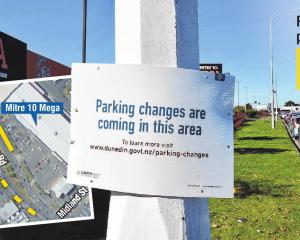Threats to curtail the use of Global Mode will directly curtail internet freedom and should be opposed at every opportunity, Dunedin internet service provider Stewart Fleming says.
Global Mode provided legitimate way for New Zealanders to access overseas content from digital providers, and pay for the content they accessed.
Slingshot's Global Mode had allowed New Zealanders access to the United States' version of Netflix which launched a New Zealand version here last month.
Mr Fleming, the owner of Wicked Networks, was appalled the proposed legal action to stop Global Mode was being considered.
He was joined yesterday in his opposition by Consumer New Zealand.
Consumer chief executive Sue Chetwin said the move by Sky Lightbox, Television New Zealand, Mediaworks and Spark to stop Global Mode was ''simply protectionism'' of old content distribution models.
''While they may argue that this is not about taking action against consumers, it's exactly consumers who will end up paying more because of this.
''Consumers will always look for the best deal and if that isn't offered by a New Zealand company then they shouldn't be stopped from looking overseas for a better deal,'' she said.
Mr Fleming said it was legal in New Zealand to use a VPN, or virtual private network, to access content from overseas which could be paid for.
Global Mode allowed the unblocking of overseas content which would otherwise not be accessed by New Zealanders.
It was completely different from streaming or torrent sites where illegal downloads could happen.
''With Global Mode, no-one is getting access without being paid.''
Mr Fleming used the example of Government-owned New Zealand Post and its You Shop which allowed New Zealanders to ship overseas purchases from online giant Amazon to a United States address before it was shipped to New Zealand.
In that case, Amazon was paid, the delivery to the US address was paid for, followed by payment to have the end product sent to New Zealand.
He saw no difference in that system to the use of Global Mode to access overseas content on the internet.
In a statement, CallPlus, and its subsidiaries Slingshot, Orcon and Flip, said they strongly believed access to the internet via Global Mode was completely legal.
CallPlus has until 5pm tomorrow to decide on its course of action.
''The threat of legal action by TVNZ, Mediaworks, Sky and Spark is merely an attempt to restrict consumer choice in favour of their profits.
''These companies want to control the internet. They want to restrict what Kiwis can do online.
''To claim it's a business-to-business issue is nonsense. This is an issue that impacts every Kiwi consumer. These four large corporates want to dictate what you can watch, when you can watch it, and how much you pay for it.''
Mr Fleming said no-one should control the internet.
Businesses relied on access to the internet to conduct commerce, as did their customers.
New Zealanders paid their ISP for access to the internet and paid Netflix for content.
No-one was getting anything for nothing.
''The internet allows a whole raft of things to happen. It is faster than the legal framework can cope with. You will always have early adopters who want everything to happen.''
Some protections were already afforded to content providers through the Copyright Act.
Politicians needed to look to the future, rather than the past, when considering internet freedom.
Allowing services like Global Mode to continue offered a brighter future for consumers because everyone would be able to compete on price and not hide behind regulations, he said.
Ms Chetwin said Global Mode allowed New Zealanders access to legal content from overseas website blocked by geographic restrictions (geo-blocks).
Those services included streaming video on demand sites such as Hulu Plus, Amazon Prime Instant Video and Netflix.
''What is available overseas is just as fast, more accessible to those with impairments, in many cases easier to use, cheaper and often of equal or higher quality to what is offered here. Why should New Zealand consumers be lumped with an inferior product?''
For New Zealanders with visual and hearing impairments, the need to access overseas services was greater, as no New Zealand-based service, including state broadcaster TVNZ, offered audio descriptions or closed captions, she said.












